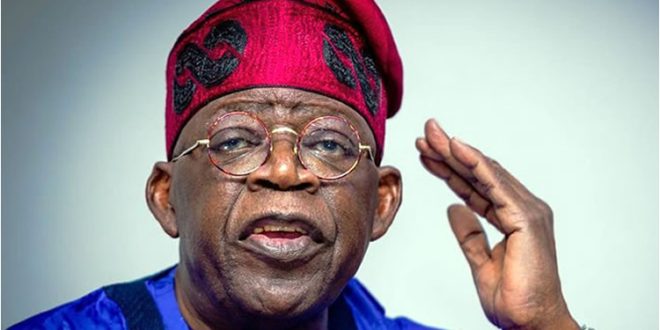By Funmi Ojo
Former Jigawa State Governor, Sule Lamido has challenged the widely held belief that President Bola Tinubu is the architect of modern Lagos State.
A member of the opposition Peoples Democratic Party (PDP), Lamido dismissed Tinubu’s tenure as Lagos governor, arguing that the city’s development was largely driven by Federal Government investments made when Lagos was the Nigerian capital.
Speaking on Channels Television’s “Politics Today,” Lamido stated, “I knew him when he was under SDP; when he was the secretary of the party. I also knew him as governor of Lagos State. I know him very well and I know his capacity, I know what he can do; I know what he cannot do. Luckily today, he is there on top of the country. He never built Lagos.”
Lamido pointed out that critical infrastructure, such as ports, airports, and bridges in Lagos, was constructed with federal funds.
He stressed that attributing the city’s development solely to Tinubu’s tenure as governor is misleading.
Regarding the current administration under Tinubu, Lamido expressed dissatisfaction with its policies, particularly the removal of the fuel subsidy and the floating of the naira.
He criticised these measures for significantly escalating the cost of living and exacerbating inflation, which reached 33.6 percent in April 2024.
Lamido also criticised the government’s priorities, highlighting the Lagos-Calabar coastal road project amidst the demand for a new minimum wage by organised labour.
He argued that with proper resource management and investment in critical infrastructure like the coastal road project, Nigeria could afford a higher minimum wage.
“The government is doing almost everything wrong,” Lamido remarked, urging a reassessment of policies to address pressing economic challenges and prioritise infrastructure development for sustainable growth.
Lamido’s comments reflect broader concerns about the direction of Tinubu’s administration and its impact on the Nigerian populace.
He called for more thoughtful policy-making that balances economic reform with the welfare of citizens.
As the political landscape continues to evolve, such critiques may shape public discourse and influence future government actions.
 National Telescope national telescope newspaper
National Telescope national telescope newspaper



